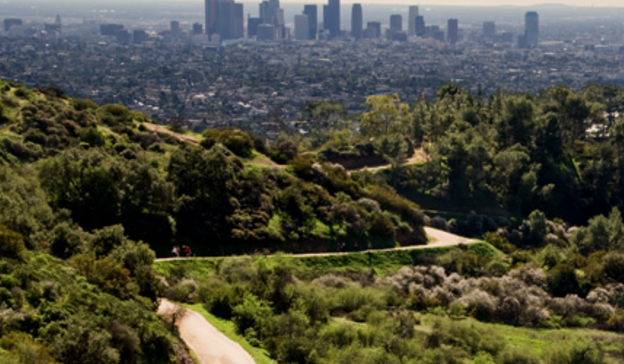By Tracy Hernandez
POSTED: 07/01/16, 2:15 PM PDT |
We at the Los Angeles County Business Federation believe local residents, communities and businesses benefit from vibrant parks and open-space facilities and programs. Local business owners, many of whom are BizFed members, have most willingly paid their share of park funding for more than 20 years through various measures.
However, on Tuesday the Los Angeles County Board of Supervisors will consider placing on the November ballot a newly contrived formula to replace the existing parcel taxes going toward our parks. This proposal is fundamentally unfair to many less-affluent communities where businesses and property owners would foot a higher share of the tax burden.
There is no need to change the way this tax is applied. For the last two decades, every parcel owner has contributed the same flat fee to keeping our parks beautiful and highly usable. The new proposal would impose a tax increase of 3 cents or 5 cents per square foot on locally assessed secured parcels in the county. The parcel tax would double or quadruple the existing tax measure revenues, one of which expired in 2015 and the other of which is set to expire in 2019.
And this overreach into taxpayers’ pockets is not the worst of it! As it’s currently designed, the proposed tax requires some communities to pay significantly more for parks than others, according to a new report by the California Tax Foundation, the independent, non-partisan research arm of the California Taxpayers Association.
The report shows that under the proposal, some wealthy communities with higher property values, such as Manhattan Beach, Malibu, Redondo Beach, Rancho Palos Verdes and Diamond Bar, would pay less in taxes than communities with lower assessed values, including Compton, Downey, Inglewood, Lancaster, Pomona and West Covina.
The report raises concerns about both the accuracy of square-footage data for residences and businesses and the disproportionality of the tax. The CalTax analysis shows that more than 38 percent of the tax would be paid by property owners in the city of Los Angeles, while 47 percent would be paid by property owners in unincorporated cities. Another 14 percent would be borne by property owners in incorporated cities.
In a letter from the city of Carson to Los Angeles County Supervisor Mark Ridley-Thomas, the city identified several inaccuracies in the county’s needs assessment. The letter identified “overcounting” of facilities and “underestimating“ of future parks and recreation needs. For example, according to the letter, the needs assessment stated that Carson has seven senior centers when it has one.
This measure would exacerbate our affordable-housing crisis. As property owners of multifamily units pay radically more by changing from a flat fee to a per-square-foot fee, the proposed tax would have a direct negative impact on the county’s housing efforts. The supervisors must face up to this unintended consequence of changing the funding formula.
While the county is considering this parks fee, it is finalizing a separate ballot measure based on another parcel tax to combat homelessness, and a major new transportation sales tax has already been put on the ballot.
We need and want our parks and support paying a reasonable tax to fund their upkeep. But we reject blatant overreach. Instead of a per-square-foot tax, keeping a similar flat parcel tax would head off increased costs, especially in our most needy communities. It would also stimulate, not hinder, countywide multi-unit housing growth over the longer term.
Parcel taxes, when leveraged uniformly and proportionately, can be an important way to fund community initiatives like parks. But the patent unfairness and disproportionality of this particular proposal shows it is premature and unwise to put it on the ballot until the total amount needed, and the formula to calculate the tax rate, are fixed.
Tracy Hernandez is the founding CEO of the Los Angeles County Business Federation.
